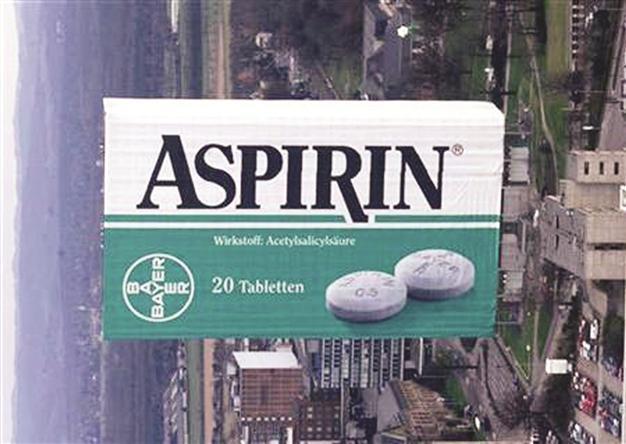Aspirin may help prevent cancer, new study says
NEW YORK - Reuters

REUTERS photo
A new study bolsters the case that daily aspirin may help protect against cancer, although the effect seems weaker than previously thought.And the final chapter on the popular but controversial drug has yet to be written, experts say, because like earlier research the new work has considerable limitations.
“News about the cancer potential of aspirin use has been really encouraging lately,” said Dr. Michael Thun of the American Cancer Society, who worked on the study. “Things are moving forward, but it is still a work in progress.”
Medical guidelines in the U.S. already urge people to take low doses of aspirin to prevent heart disease if the predicted benefits outweigh the risk of side effects, or if they have already suffered a heart attack.
Whether those recommendations should be broadened to include cancer prevention is still up in the air, however.
Earlier this year, an analysis of previous clinical trials showed that people on aspirin were less likely to die of cancer than those not on the medication, with a 37-percent drop in cancer deaths observed from five years onwards.
The new report, published Friday in the Journal of the National Cancer Institute, is based on real-life observations instead of experiments. It includes a decade’s worth of data from more than 100,000 men and women in the
U.S., most over 60 and all of them non-smokers. People who said they took daily aspirin - whether ‘baby’ or adult strength - had a 16-percent lower risk of dying from cancer than non-users overall, Thun and his colleagues found.
For men, the difference came out to 103 fewer cancer deaths a year per 100,000 people; for women, the number was 42.
















